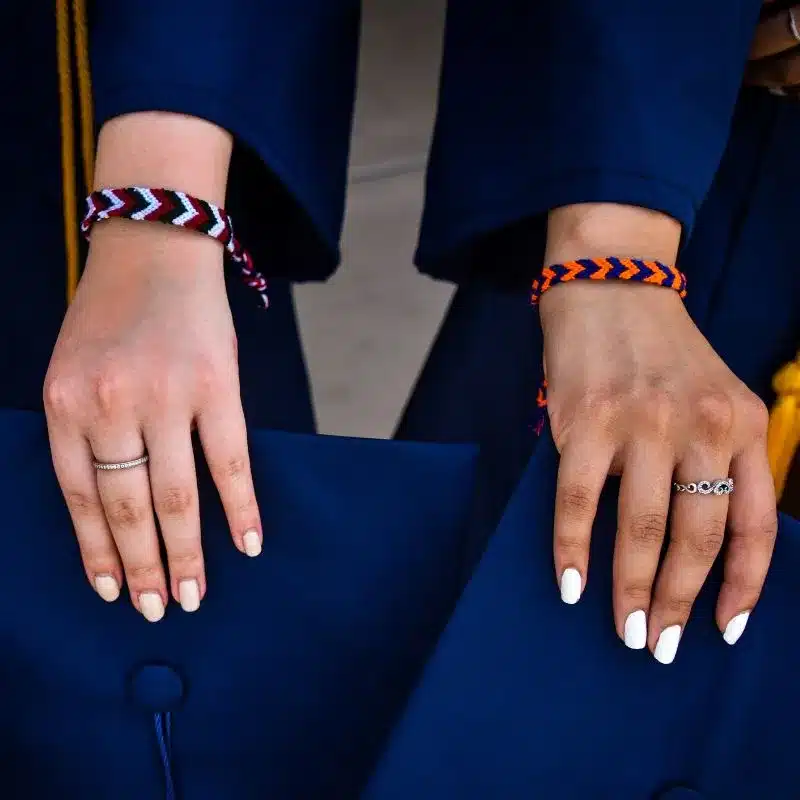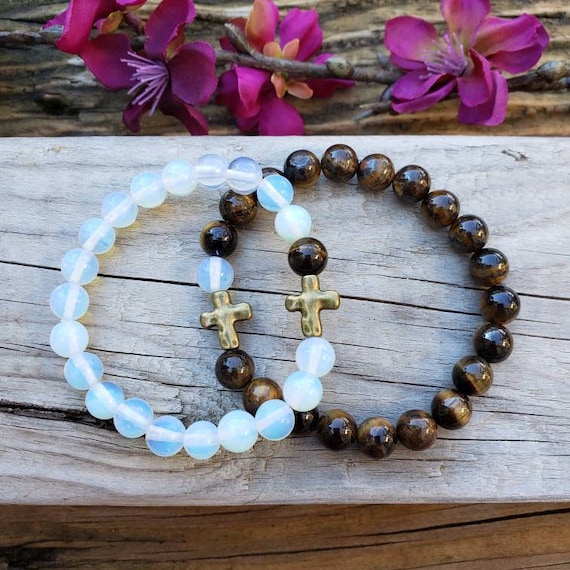
Introduction
Bracelets are a versatile accessory that can add a pop of color and personality to any outfit. When it comes to creating stylish and cohesive looks, the choice of bracelet colors and the way they are combined is essential. From bold and contrasting combinations to subtle and harmonious pairings, the right color combos can elevate your wrist game and make a fashion statement. In this article, we will delve into the art of wrist style by exploring the best color combos for bracelets, offering inspiration and guidance for creating eye-catching, coordinated looks that reflect your individuality and fashion sensibilities.
Part 1: Understanding Color Theory
Level 1: Basics of Color Wheel
Understanding the color wheel is fundamental for creating appealing color combinations. The color wheel consists of primary colors (red, blue, and yellow), secondary colors (green, purple, and orange), and tertiary colors (a mix of primary and secondary colors). Complementary colors, analogous colors, and monochromatic schemes are various color combinations that can be derived from the color wheel.
Level 2: Effect of Colors
Different colors exude various emotions and convey different messages. For example, red symbolizes energy and passion, while blue represents tranquility and calm. By understanding the psychological effects of colors, you can choose bracelet combos that express the mood and style you want to project.
Part 2: Bold and Contrasting Combos
Level 1: Complementary Colors
Pairing complementary colors on the color wheel creates bold and eye-catching combinations. For example, red and green, blue and orange, or yellow and purple create striking contrasts that draw attention and create a vibrant look when combined in bracelets.
Level 2: Three-Color Combinations
Incorporating three complementary colors into bracelet stacks can add depth and visual interest. For instance, combining blue, orange, and green bracelets creates a bold and playful ensemble that showcases a dynamic color scheme.
Part 3: Harmonious and Subtle Pairings
Level 1: Analogous Colors
Analogous colors are next to each other on the color wheel and create harmonious combinations. For instance, combining blue and green or red and orange bracelets offers a cohesive and pleasing look that is visually balanced and easy on the eyes.
Level 2: Monochromatic Schemes
Monochromatic color combos involve different shades and tints of a single color. Pairing bracelets in varying shades of blue or different tones of pink creates a sophisticated and elegant look that is both cohesive and stylish.
Part 4: Considering Metals and Neutral Tones
Level 1: Mixing Metals
Mixing different metal tones such as silver, gold, and rose gold in bracelet combinations adds visual interest and allows for versatile accessorizing. For instance, combining gold and silver bracelets creates a modern and eclectic look that can be easily paired with other jewelry.
Level 2: Incorporating Neutrals
Incorporating neutral tones such as black, white, beige, or gray bracelets provides a versatile base for creating color combos. Neutrals can anchor bold colors and provide balance, making them essential for creating cohesive and sophisticated bracelet stacks.
Part 5: Personal Style and Expression
Level 1: Reflecting Personal Style
Bracelet color combinations should reflect personal style and individual preferences. Whether it’s a vibrant and eclectic mix or a more subdued and minimalist approach, the color combos should resonate with your fashion sensibilities and complement your overall look.
Level 2: Occasion and Mood
Consider the occasion and mood when selecting bracelet color combos. Vibrant and bold color combinations may be suitable for casual outings and social gatherings, while subtle and harmonious pairings may be more appropriate for formal or professional settings.
Part 6: Cultural Influences and Symbolism
Level 1: Cultural Meanings of Colors
Different cultures often associate specific meanings and symbolism with colors. For instance, white signifies purity and peace in many Western cultures, while it represents mourning in some Eastern cultures. When selecting bracelet color combos, it’s important to consider the cultural significance of colors to ensure that they align with personal beliefs and values.
Level 2: Symbolic Pairings
Exploring symbolic pairings based on cultural significance can add depth and personal significance to bracelet color combos. For example, incorporating colors with positive connotations, such as red for luck and prosperity or blue for tranquility and protection, can imbue the bracelets with meaningful symbolism that resonates with the wearer.
Part 7: Seasonal and Trend-Driven Combinations
Level 1: Seasonal Adaptations
Adjusting bracelet color combos according to the seasons can create a dynamic and seasonally appropriate style. Soft pastel hues and floral tones are perfect for spring, while warm earthy tones and deep jewel colors are well-suited for autumn.
Level 2: Trendy Color Combinations
Following fashion trends can inspire fresh and contemporary bracelet color combos. Keeping an eye on color trends from fashion runways and design forecasts allows individuals to incorporate modern and stylish color pairings that reflect current tastes and preferences.
Part 8: Experimentation and Individual Creativity
Level 1: Mix-and-Match Approach
Encouraging experimentation and a mix-and-match approach enables individuals to create unique and personalized bracelet color combos. Combining unexpected color pairings and exploring unconventional combinations allows for individual creativity and the development of a distinct personal style.
Level 2: Layering and Stacking Techniques
Experimenting with layering and stacking techniques broadens the range of color combinations. Layering bracelets of varying thicknesses, textures, and colors creates visual depth and dimension, offering endless possibilities for creating dynamic and personalized bracelet stacks.
Conclusion
The art of selecting the best color combos for bracelets encompasses an array of considerations, from understanding color theory and personal style to cultural influences and creativity. By incorporating symbolism, embracing seasonal adaptations, and experimenting with trends and individual creativity, individuals can curate distinctive and meaningful bracelet color combinations that not only complement their outfits but also express their individuality and evoke personal significance. Embracing the versatility and expressive potential of color allows for the creation of diverse and captivating bracelet stacks that reflect the wearer’s unique style and resonate with their personal values and cultural influences.
In conclusion, mastering the art of wrist style through the selection of the best color combos for bracelets allows for endless creativity and personal expression. Understanding color theory, exploring bold and contrasting combinations, harmonious pairings, and the role of metals and neutrals enables individuals to curate striking and cohesive bracelet stacks that reflect their unique style and make a lasting fashion statement. By incorporating color theory, personal style, and occasion-appropriate choices, you can create visually captivating and stylish bracelet combinations that enhance any ensemble.



